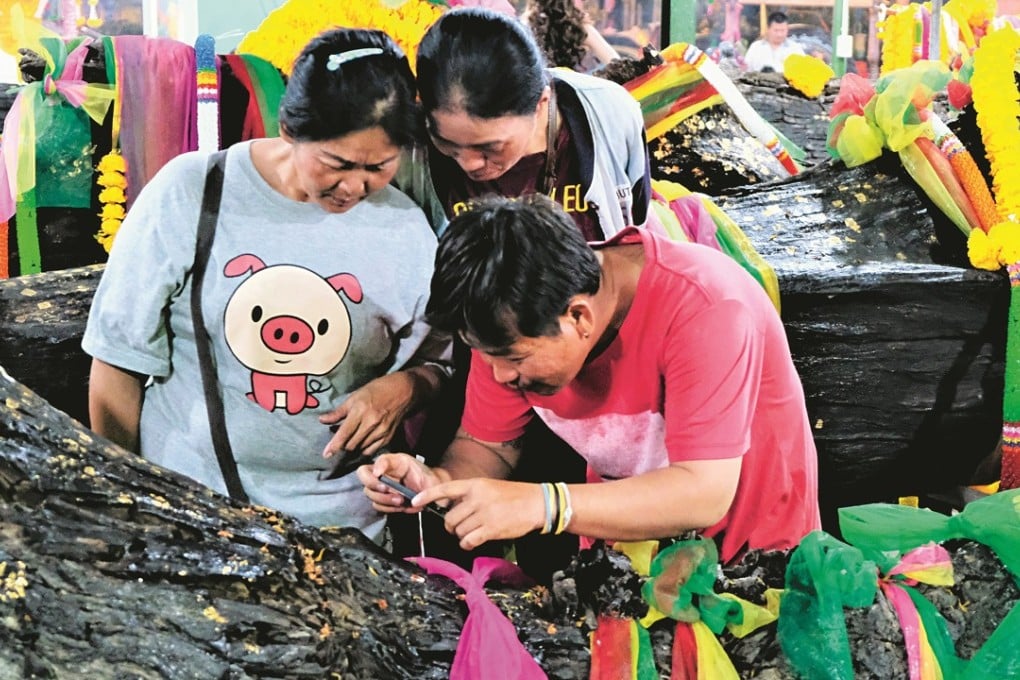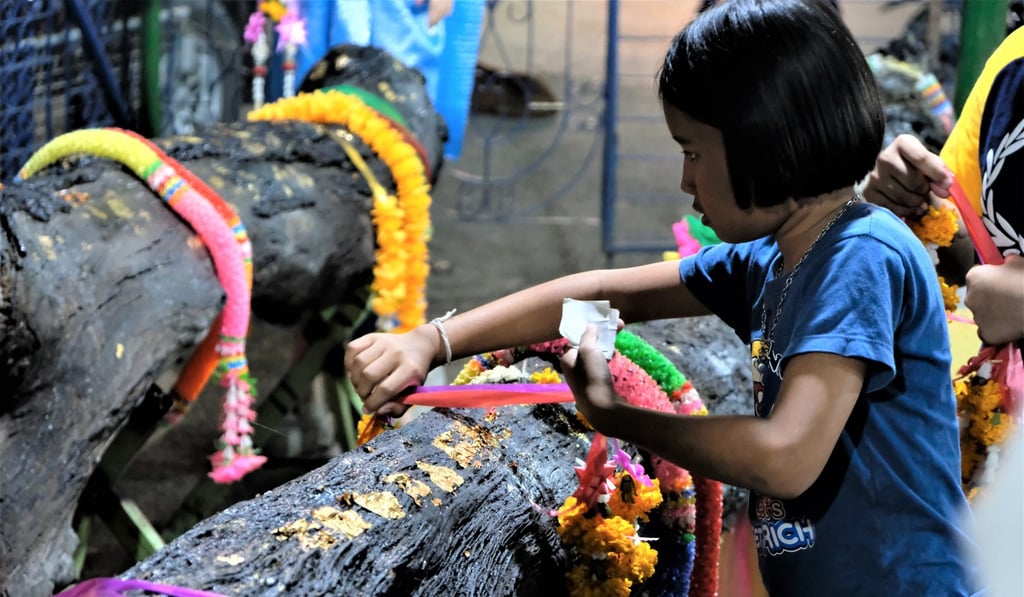Lottery fever at Thai temples as public worship tree trunks and scour them for lucky numbers
- Thais believe a benevolent spirit lives in every tree, and make offerings in the hope the shapes of winning lottery numbers will appear
- 20 million Thais regularly play the national lottery

At first glance the scene may come across as a gathering of enthralled botanists. Thirty-two horizontally mounted tree trunks, each thickly lacquered and festooned with colourful ribbons, are laid out in the form of a rectangular labyrinth, behind sequinned statues of mythical naga serpents.
Around the boles are numerous mannequins of beautiful young women clothed in brocaded Thai-style dresses, appearing to keep them company or watch over them. Navigating the tight spaces between the trunks are scores of local men and women, young and old. They look pensive, even reverent, as they mill about in silence.
However, these visitors to the Buddhist temple of Wat Bo Ngern (“Money Well”), in a rural part of Pathum Thani province in central Thailand, aren’t arboreal enthusiasts scrutinising the intricacies of tree anatomy. They’re fortune seekers poring over odd shadings and intricate patterns in the wood to divine the shapes of “lucky numbers”. The people who flock here daily from near and far all have the same wish: to win the lottery.
Pausing here and there intuitively, they stick gold leaves on the trunks or bow down to them with a respectful Thai-style wai – palms pressed together, heads bowed. They lean closer and peer at random sections of wood. Many of them snap pictures of gnarls and bits of flaky bark on their mobile phones, the better to inspect them up close.

The old boles come from sacred ta-khian trees (Hopea odorata) and have been dug up from nearby rice paddies. According to Thai folklore, every specimen of this tall and shady tropical tree is inhabited by a female spirit called Nang Ta-khian (“Lady of the Ta-khian Tree”), who can be induced by offerings to grant wishes.